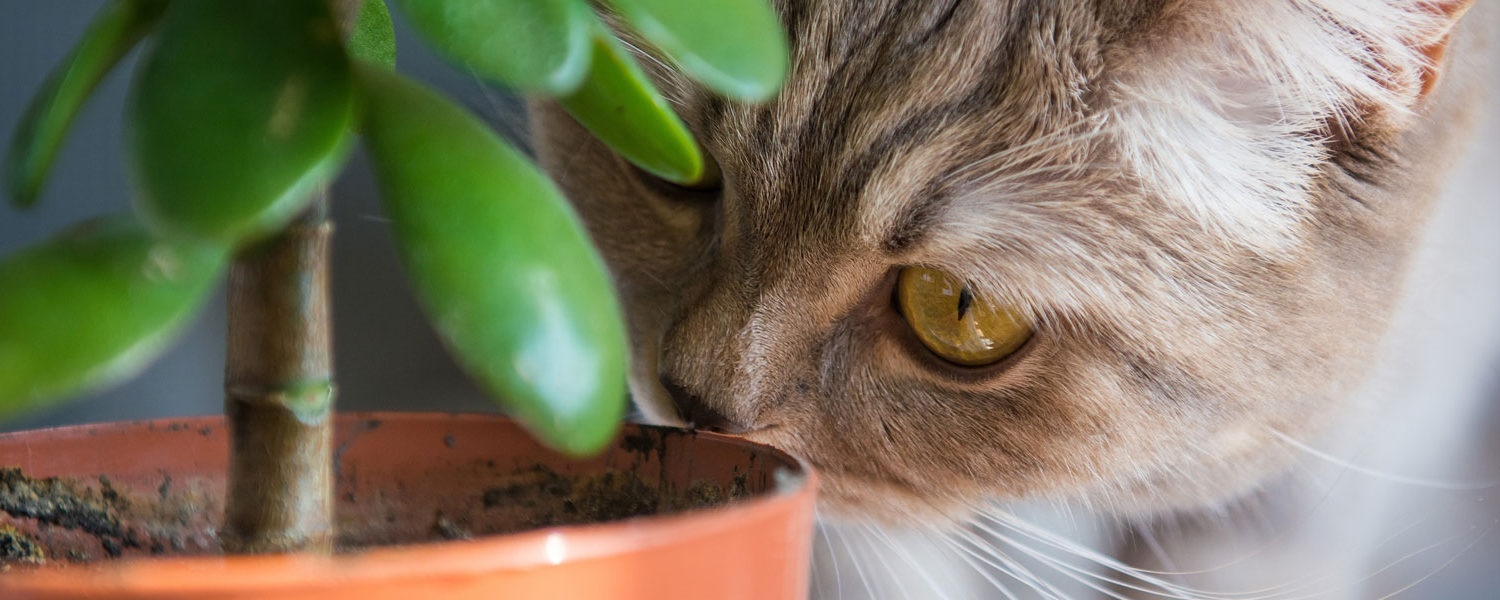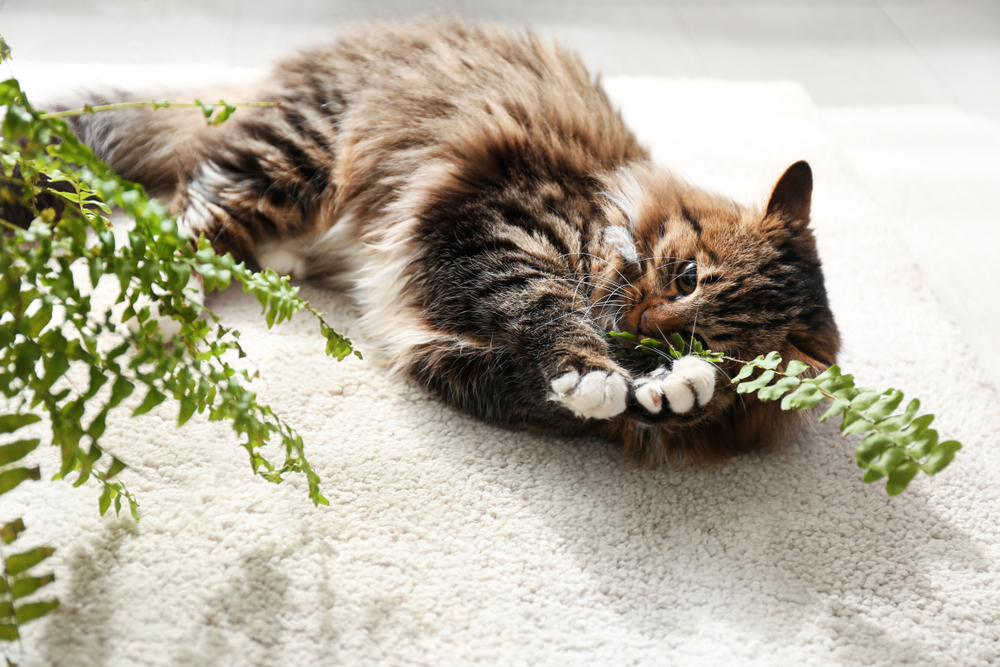
The Houseplants That Could Poison Your Cat
It’s extremely important to select plants that are safe for your pets. The lists of toxic and non-toxic plants vary depending on whether you share your home with cats, dogs, or both. For the purposes of this article, we’ll focus on houseplants in feline-friendly homes. (Though, there are no guarantees on whether the non-toxic plants you choose will be safe from your kitty.)
Do Cats Naturally Avoid Poisonous Plants?
Although cats tend to be picky eaters, they’re highly curious and playful. So, they might not see your newest houseplant as a meal, but they will likely view it as a perfect play-thing to be pounced, swatted, and chewed. Some plants that are poisonous for cats have to be ingested to have any adverse effects, but brief exposure to other toxic plants (lilies for example) can be fatal.
Cats are agile, natural explorers, and it’s almost impossible to put a plant in a location that a cat can’t reach. So, it’s best for cat owners to completely avoid introducing toxic plants into their homes.
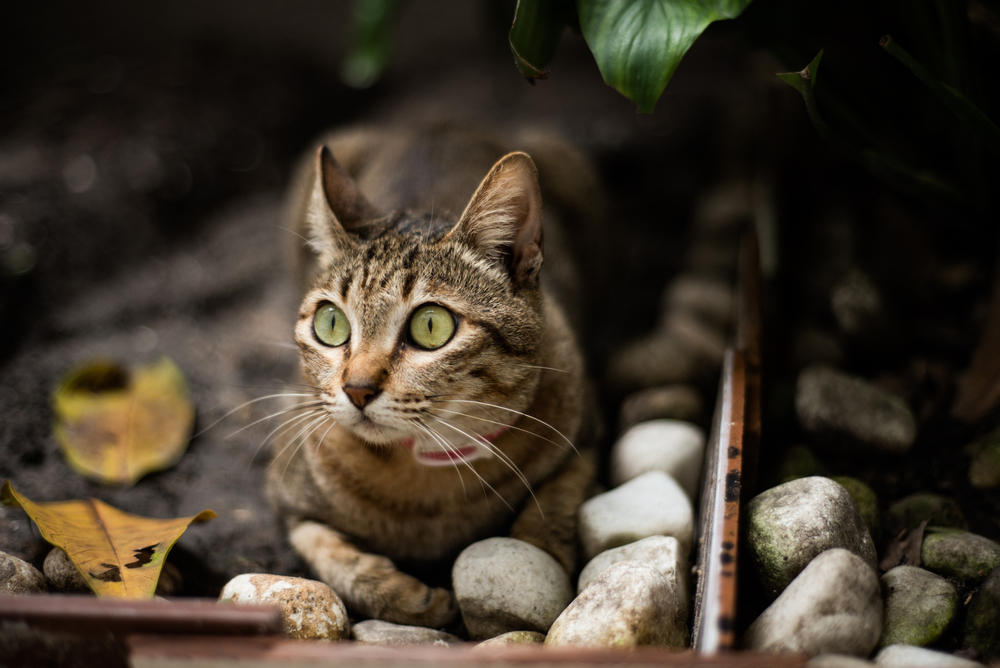
The Most Common Houseplants That Are Poisonous for Cats
There are hundreds of plants that are toxic to cats. While most only cause mild signs, such as vomiting or oral irritation, some are truly toxic and can cause organ failure. The most dangerous plants that need to be avoided are marked with an asterisks. (*)
These are some of the most common plants to avoid in your homes and gardens:
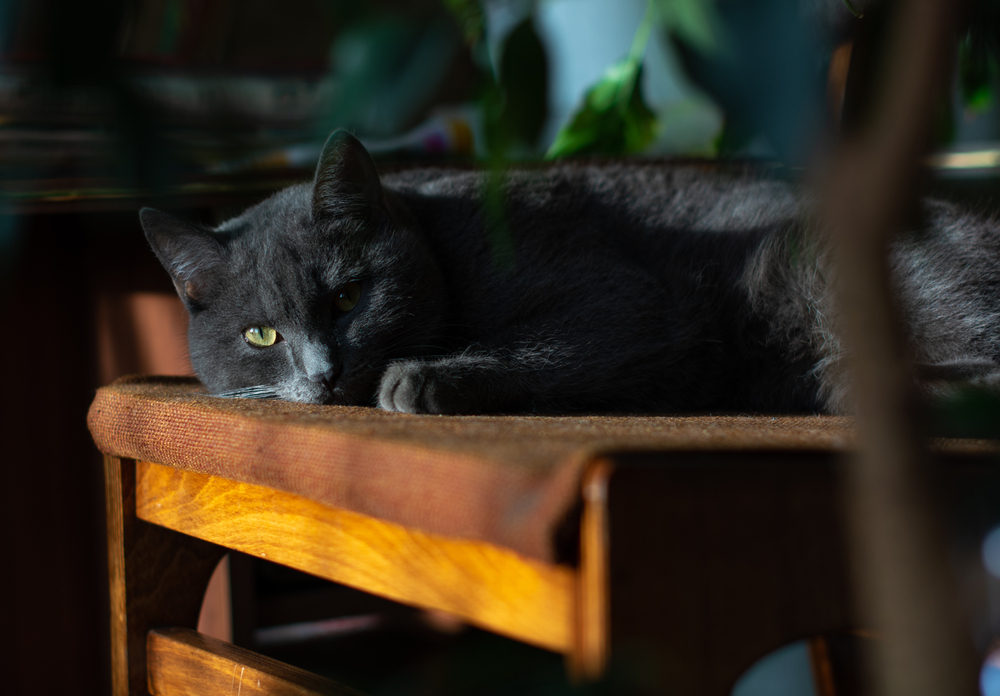
- Aloe
- Amaryllis
- Azalea*
- Carnation
- Castor Bean*
- Chrysanthemum
- Cyclamen*
- Daffodil*
- Dieffenbachia
- Foxglove*
- Hyacinth
- Hydrangea
- Ivies
- Kalanchoe
- *Lilies – Especially Easter Lily, Star Gazer Lily, and Tiger Lily*
- Marijuana
- Oleander*
- Poinsettia
- Rhododendron
- Sago Palm*
- Tulips
- Yew
Visit the ASPCA’s Animal Poison Control Center to view a complete list of plants that are toxic to cats and also a list of plants that are safe to have in and around a cat-friendly home. (You can view lists for dogs and horses, too!) If you’re planning to add a new plant to your house or garden, we recommend looking for plants listed on the ASPCA’s list of plants that are non-toxic for cats.
Signs of Poisoning in Cats
Symptoms of poisoning in cats can range from mild to severe. If your cat comes into contact with or ingests a toxic plant, you might notice any of the following signs or symptoms of poisoning:
- Scratching or itchiness
- Irritation around the mouth
- Watery, red eyes
- Swelling
- Vomiting and/or diarrhea
- Irregular heartbeat
- Drooling
- Trouble swallowing
- Difficulty breathing
If you notice any unusual symptoms, behaviors, or bite marks on a toxic plant’s leaves, take action immediately.
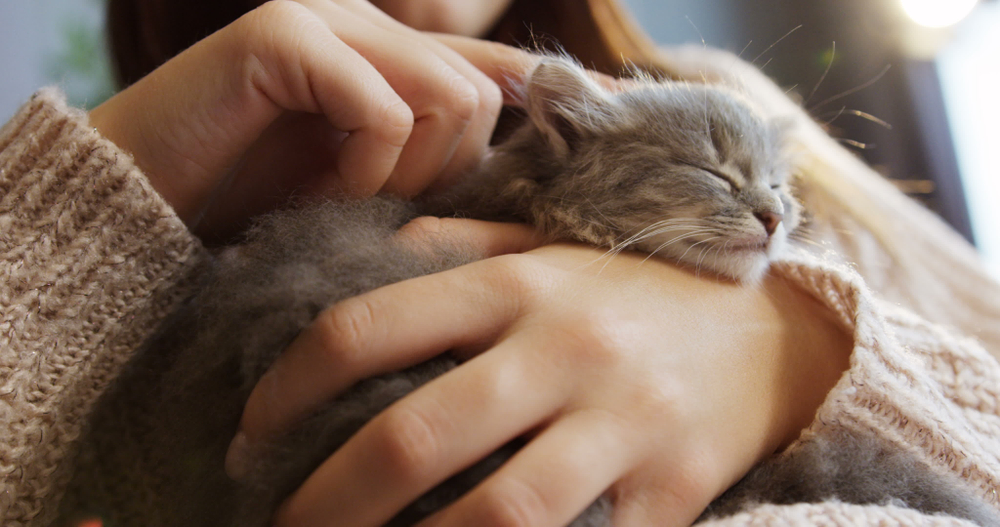
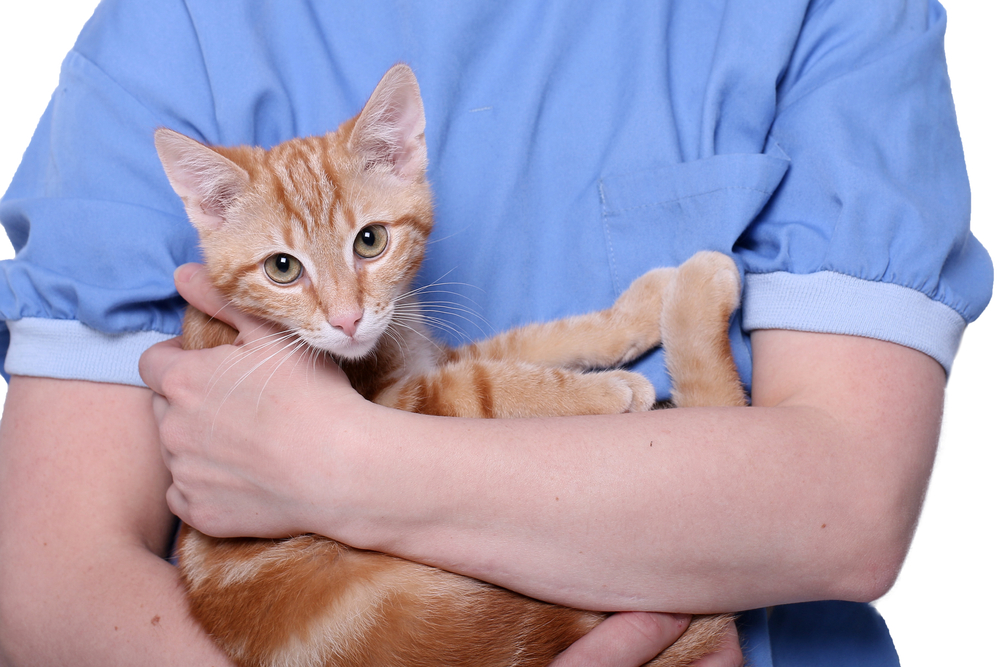
What to Do If Your Cat Ingests a Poisonous Plant
If you suspect your cat has ingested or come into contact with a toxic plant, contact Animal Poison Control and seek emergency veterinary care right away. Quick action is the best way to avoid any danger to your cat after a toxic plant ingestion. We are available at Sleepy Hollow Animal Hospital to help with any questions you might have. After hours, contact our local 24/7 specialty hospitals.






